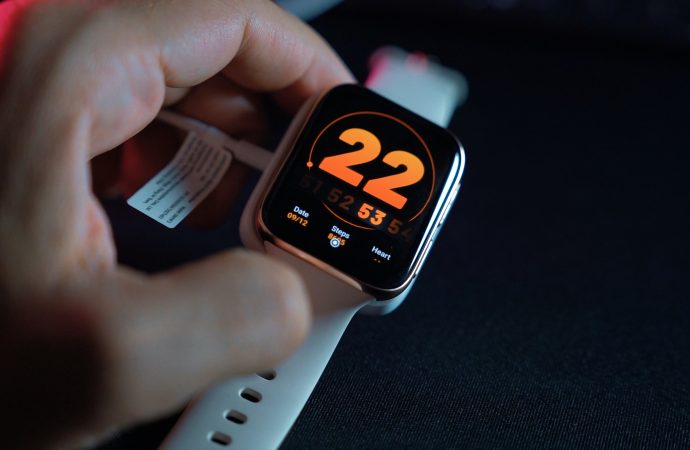The healthcare industry has always been at the forefront of innovation, with technology rapidly changing the way it operates. From virtual consultations to electronic health records, technology is revolutionizing patient care and making medical processes more efficient. However, in a world where data privacy breaches are becoming increasingly common, it’s essential to strike a balance
The healthcare industry has always been at the forefront of innovation, with technology rapidly changing the way it operates. From virtual consultations to electronic health records, technology is revolutionizing patient care and making medical processes more efficient. However, in a world where data privacy breaches are becoming increasingly common, it’s essential to strike a balance between leveraging innovative technologies while ensuring patients’ privacy and security concerns are adequately addressed. In this blog post, we explore how healthcare providers can harness the benefits of technology while mitigating its risks by maintaining an ethical approach towards data management and protection.
The Integration of Healthcare and Technology
The integration of healthcare and technology is an ongoing process that has revolutionized the industry. With the introduction of electronic health records, telemedicine, wearable devices, and mobile apps, patients’ access to accurate medical information has become more comfortable than ever before.
One significant benefit of this integration is improved communication between patients and their doctors. Patients can communicate with their physicians remotely through video conferencing or messaging platforms, allowing for quick consultation without having to visit a hospital physically. Additionally, telemedicine services have reduced overall healthcare costs by reducing the number of unnecessary emergency room visits.
Wearable devices such as smartwatches are also becoming increasingly popular in monitoring vital statistics such as heart rates and blood pressure. This data can be shared with doctors instantly using integrated applications like Apple HealthKit.
However, it’s essential to note that not all aspects of integrating technology into healthcare have been successful. There are concerns about data privacy breaches leading to unauthorized access to sensitive patient information. It’s crucial for healthcare providers to ensure that technological solutions implemented maintain appropriate security protocols while complying with regulatory requirements.
Despite some challenges involved in integrating technology into healthcare practices continually evolving technologies provide promising opportunities for improving patient care outcomes while lowering costs associated with traditional methods of treatment delivery.
The Benefits of Technology in Healthcare
The integration of technology in healthcare has brought about several benefits that have improved the quality and efficiency of patient care. One of the most significant advantages is the ability to easily access patients’ medical records electronically. This streamlines communication between healthcare providers, reduces errors caused by miscommunication, and improves diagnosis accuracy.
Another benefit is the use of telemedicine, which allows doctors to consult with patients remotely via video conferencing. This saves time for both doctors and patients while still providing high-quality care. Additionally, remote monitoring devices can track a patient’s health status without requiring them to be physically present at a clinic or hospital.
Technology also plays a key role in medical research and development. With advancements such as big data analytics and machine learning algorithms, researchers are able to identify patterns that were previously undetectable using traditional methods. This has led to breakthroughs in disease prevention and treatment options.
Mobile apps have made it easier for patients to manage their own health by tracking their medication schedules, exercise routines, and diet plans from the comfort of home.
Technology continues to play an increasingly important role in modern healthcare systems by improving patient outcomes while reducing costs associated with manual processes.
The Risks of Technology in Healthcare
While the integration of technology in healthcare has many benefits, there are also potential risks that need to be addressed. One major concern is the risk of data breaches and cyber attacks. As more patient information is stored electronically, it becomes vulnerable to hacking or other security breaches.
Another risk is that reliance on technology may lead to errors or mistakes. For example, if a computer system fails or malfunctions, critical patient data could be lost or misinterpreted. Additionally, there may be instances where patients are misdiagnosed due to over-reliance on automated diagnostic tools.
Moreover, increased use of technology in healthcare can sometimes result in reduced face-to-face interaction between patients and healthcare providers. Patients may feel less connected with their providers and therefore less likely to share important information about their health.
There are concerns around privacy and confidentiality when it comes to electronic medical records (EMRs). While EMRs have made it easier for providers to access patient information quickly and efficiently, they also raise questions about who has access to this sensitive information and how it is being used.
While there are certainly benefits associated with integrating technology into healthcare delivery systems, these risks must be taken seriously and addressed proactively by all stakeholders involved in providing quality care.
Conclusion
The integration of technology into healthcare has revolutionized the way we diagnose, treat, and prevent illnesses. With benefits like faster diagnoses and improved patient outcomes, it’s easy to see why healthcare providers are eager to adopt new technologies. However, with these advancements come risks such as data breaches and privacy concerns.
As we continue to integrate technology into healthcare systems, it’s important that we prioritize balancing efficiency with privacy concerns. This means ensuring that patient information is safeguarded through secure networks and encryption methods while also streamlining processes for healthcare providers.
In the end, the success of this integration will depend on collaboration between medical professionals, IT experts, policymakers, patients and their families. By working together toward a shared goal of improving patient care through technological innovation while prioritizing data security and privacy protection measures in every step along the way will ensure a better future for our health system where everyone can benefit from these innovations without fear or worry about how their personal data could be used against them.

















Leave a Comment
Your email address will not be published. Required fields are marked with *